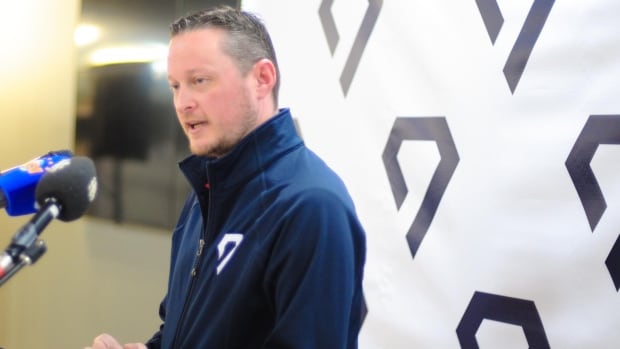
Ottawa businessman Carl Dymond has repeatedly said he will create thousands of jobs, spending hundreds of millions in private money, when he finalizes the purchase of the airport in Stephenville, N.L., and sets his plans in motion there.
His initial announcement more than a year ago sparked hope, with politicians in western Newfoundland cheering his vision.
But timelines for the transaction have shifted, and the deal hasn’t yet closed.
Now a CBC News investigation — using public records searches and visits to his Ottawa business addresses — has uncovered information that raises a swirl of new questions about Dymond’s financial plans and corporate capabilities.
Among those findings:
- The sole director overseeing two Dymond companies says he didn’t actually know he was still listed as serving in that role, after having cut ties with Dymond nearly a year ago. A corporate governance expert says that raises red flags.
- CBC News visited three Ottawa locations listed as business addresses for Dymond companies and couldn’t find any evidence they currently operate there.
- Potential business partners who announced deals with Dymond over the past year have declined to comment on the current status of those plans. There has been no indication of public progress on the proposals, which required cash investments from Dymond’s companies.
Right from the start, Dymond has stressed that he is not looking for public cash to make his vision for Newfoundland’s west coast a reality.
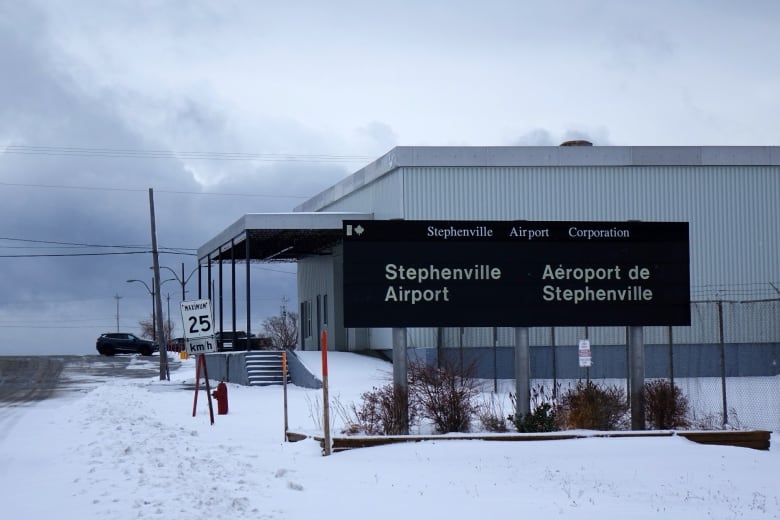
“We want to be able to do this with our money,” he said at the Sept. 9, 2021, news conference announcing his planned acquisition of the airport.
“I think putting our money into it is showing that we’re serious about what we’re looking to do.”
Six weeks later, in an interview with a local business group, he was even more clear.
“I’ve made enough money to last me a lifetime. So now it’s, ‘Do I need to have $3 billion or $300 billion or $3 trillion?'” Dymond said in an Oct. 22, 2021, interview posted on Facebook by the Long Range Small Business Week Committee.
“I don’t care. You know what I mean?… They’re just numbers. And right now, honestly, if this takes money to get started, happy to put my own money up front to do that.”
But public records raise questions about Dymond’s ability to do just that. He recently took on additional personal financial debt and has an outstanding judgment against him in Newfoundland.
He recently said investors — who he declined to name — are in the wings and ready to make his Stephenville dreams a reality, and stressed that his business and personal finances are separate.
Dymond has declined multiple CBC News interview requests this year about the status of his plans for Stephenville. He would not grant an interview for this story but provided an emailed statement.
“It takes time to finance the type of growth we are planning for Stephenville, but financing is underway with appropriate due diligence undertaken on all sides,” he wrote.
“Like most business owners, I operate under a limited liability structure, and there is no connection between my personal finances and the finances of the company.”
His vision includes a manufacturing facility for giant futuristic cargo drones and the return of scheduled passenger service to the currently moribund airport.
Mystery Ottawa office locations
Dymond incorporated two eponymous, federally registered companies in 2017, according to public records.
The Dymond Group and Dymond Aerospace were both initially based out of his suburban Ottawa home, with Dymond himself listed as the sole director.
In the summer of 2021, he filed documents changing the Dymond Group office address to a building just blocks from Parliament Hill.
As of this week, that address — 251 Laurier St. W., Suite 800 — was listed at the top of Dymond’s corporate website.
That address was once home to a “virtual office” company.
Virtual offices allow businesses to use the address of a prestigious office building, without necessarily having a physical presence there. They offer services such as meeting rooms, access to co-working spaces, and mail services.
CBC News visited the Laurier location this summer — on June 28, just hours before Dymond announced a binding acquisition agreement had been signed for the airport in Stephenville.
The building’s directory listed Suite 800 as “available for lease.” The elevator doors opened up onto a vacant office space.
On Oct. 31, Dymond filed paperwork listing a nearby downtown Ottawa building, at 150 Elgin St., as the new office address. That building is now home to the same virtual office company that used to operate at 251 Laurier St.
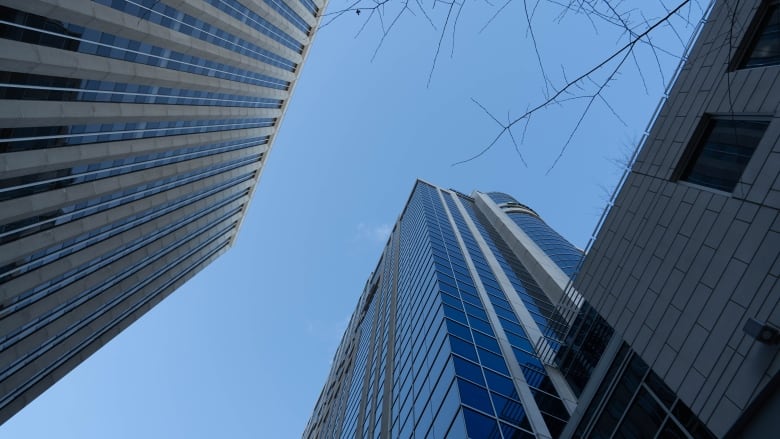
On Nov. 15, CBC News went there. There was no listing for the Dymond Group in the building’s directory.
The receptionist at the Elgin virtual office location told CBC News that Dymond had once been a client for those virtual services but wasn’t any more.
His other company, Dymond Aerospace, changed office locations from his home to a building in a suburban Ottawa business park in August 2021, according to corporate filings.
Dymond Aerospace was not listed in the business directory there either.
There is another branch of the same virtual office company in that building as well. The person in the reception area told CBC News last week they had never heard of Dymond.
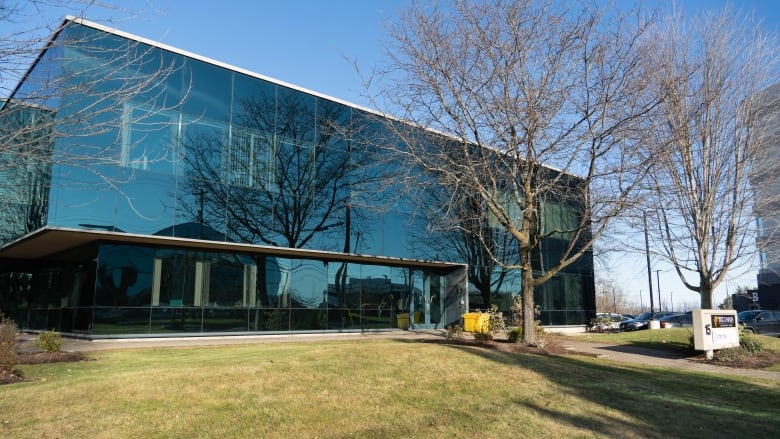
Meanwhile, Dymond incorporated a federally registered numbered company last year for his business interests in Newfoundland. He is calling it the Greater N.L. Partnership. The listed address is in an east-end St. John’s office building.
When a CBC News reporter visited on the afternoon of Nov. 25, there appeared to be no one inside.
The person at the office next door indicated that, to their knowledge, no one had been working out of the Dymond Group office in a couple of months.
Director for a year, and says he didn’t know it
There is also apparent confusion about who has been directing Dymond’s operations in the nation’s capital.
Dymond himself was listed as sole director when he incorporated the two Ottawa-based companies back in 2017.
Directors play a key role. According to the federal government, they are responsible for supervising the activities of the corporation.
In the summer of 2021, Dymond filed documents de-listing himself as director of both the Dymond Group and Dymond Aerospace.
His replacement as director, retroactive to July 2020, was named as Dominic Howarth.
But last month, Howarth told CBC News he hasn’t had anything to do with Dymond for about a year and didn’t actually know he was still listed as a director until recently.
Howarth said a former colleague informed him that he was still on the books as director of the two Dymond companies. So he contacted Dymond and asked to be removed from the position.
He described his role as “very temporary solution at the time.”
“I didn’t even have the full gist of everything,” he said. “It was more just being a support factor for their company.”
Howarth said he has since moved on to other things and Dymond is the “director, he’s the owner, he’s the guy running all the show and making the decisions.”
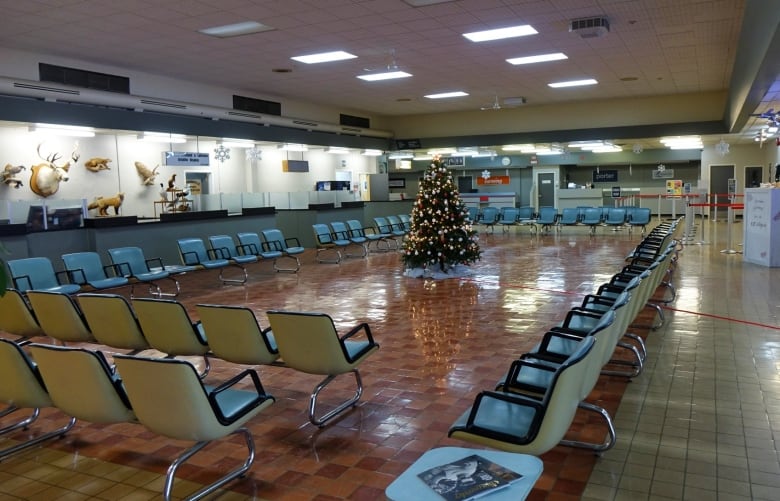
On Oct. 31, Dymond filed paperwork retroactively reappointing himself director of those two companies, all the way back to July 2020.
In his email to CBC News, Dymond said “we are functioning like a startup,” and categorized the changes as routine.
“As most entrepreneurs know, there is a lot of change during the first year(s): change of location and changes in key roles, but we are committed to being transparent about those changes as they develop,” he wrote.
“With the additional unsuspecting change of the pandemic, our employees and myself have been working remotely from home, our offices have not been occupied and some leases have expired.”
‘That really tosses up some red flags,’ expert says
But a corporate governance expert says all of this — the apparent confusion over who is actually directing the companies, and questions over their listed addresses — raises concerns.
“How could you be a director of a company and not know it?” said Richard Powers, associate professor at the University of Toronto’s Rotman School of Management.
“How does something like this happen? There may be a very reasonable explanation, but typically there’s not.”
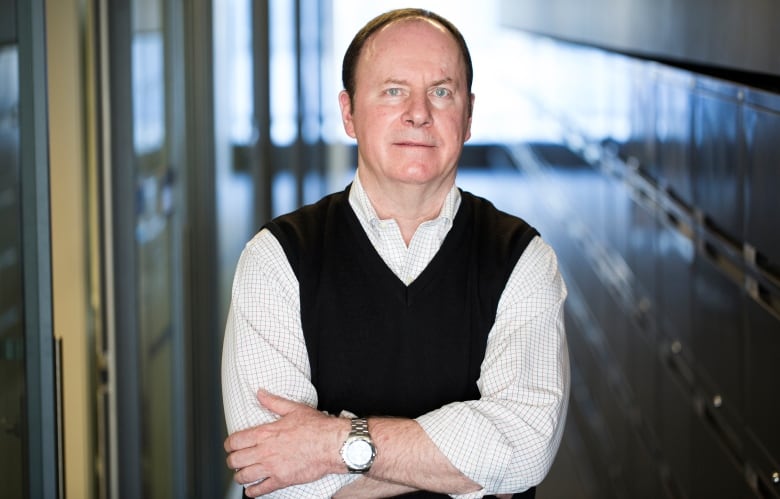
Powers called the situation involving the registered offices “very unusual” and said the confusion over directors is “shoddy” corporate governance.
“Particularly when you start saying that you’ve checked out the addresses and there was no evidence of them being there, that really tosses up some red flags,” he said.
“You put it together with the information around the absence of a valid director. It really calls into question if I was the government or if I was another party looking to do business with them. I’d be a little bit wary at this point.”
2nd mortgage taken out on home before deal inked
Dymond announced his acquisition of the Stephenville airport at a news conference in September 2021.
But talks dragged on past the initial deadline set for the end of 2021. He did not sign a binding acquisition agreement with the local airport authority until late June of this year.
Less than two weeks before signing that airport deal, Dymond completed another financial transaction.
He and his spouse took out a $236,600 second mortgage on their suburban Ottawa home, at an interest rate of 12 per cent.
The cash was borrowed from British Columbia-based Ryan Mortgage Income Fund Inc., which says it “lends money by way of residential mortgages to Canadians who fall outside of the conventional banking system.”
A first mortgage remains listed as a charge against the property. It was registered at $253,875 back in 2015, when Dymond and his spouse bought the home for $338,500.
And there is another charge still on the books: a 2018 loan for $30,000 from EasyFinancial Services, the lender that pitches “financial relief and a second chance when banks aren’t an option.” The interest rate there is 28.99 per cent over a 10-year term.
While Dymond hasn’t lived in Newfoundland and Labrador for years, there is an active judgment registered against him at the provincial sheriff’s office.
The registration dates back four years. In March, the outstanding amount was listed at $16,320. As of this week, it had grown to $20,685.
In his statement to CBC News, Dymond said, “Facts or suppositions related to my personal life are not matters of public interest. The inferences you are drawing by your characterizations are defamatory and irresponsible.”
Status of past announcements unclear
Since Dymond’s initial news conference launching his pending acquisition of the Stephenville airport more than 15 months ago, there has been word about other big things to come.
A year ago, Ottawa-based BridgesXR — then known as Corona Aerospace — announced “an investment of $20 million for a post-money valuation of $100 million from the Dymond Group for development, integration and services related to use of extended reality (XR) systems.”
As part of that plan, BridgesXR said it “will be expanding operations and opening an office in support of the Dymond Group at the Stephenville Dymond International Airport.”
CBC News has not been able to find any indication that BridgesXR has since started up operations in western Newfoundland.
In October, CBC News asked the company for an update on the status of the initiative, whether the Dymond Group has made that $20-million investment, and for details of what happened if the plans are not proceeding.
BridgesXR CEO John Nicol sent a one-word message in response: “Nope.”
Asked for clarification about whether “nope” meant the Dymond Group hasn’t made the investment, Nicol replied: “Nope, I am not interested in talking to you.”
Meanwhile, the current status of a separate announcement — that Dymond would buy an ownership stake in a U.K-based startup — also remains up in the air.
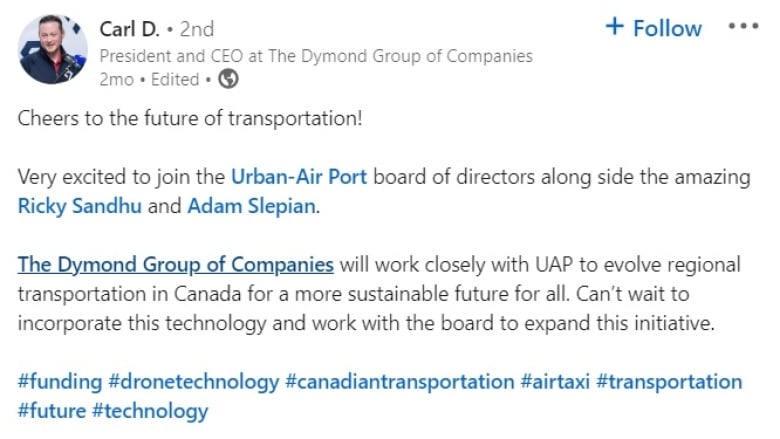
In an April press release, Urban-Air Port said the Dymond Group has “committed a significant investment” in the company, and indicated that Carl Dymond would join its board of directors.
In June, Urban-Air Port chief financial officer Adrian Zanelli told CBC News the deal was “in the final steps.”
At the time, Zanelli said it was expected to close in July, and involved a cash buy-in, although he did not provide details of financial terms. He did confirm that no money had changed hands at that point.
As part of the transaction, Dymond planned to buy two vertiports — airports for drones and eVTOLs, aircraft that use electric power to take off and land vertically.
Zanelli indicated that one of those vertiports could be built in Stephenville.
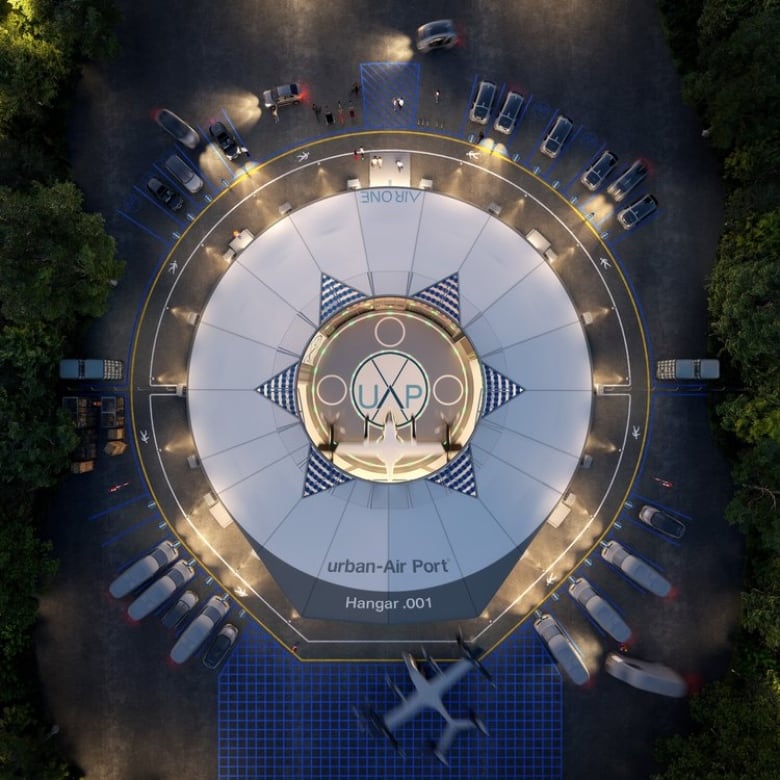
Fast-forward several months, and there is no word on what has happened since.
There has been no followup announcement posted on the Urban-Air Port website about the Dymond deal.
Carl Dymond is not currently listed as a director of Urban-Air Port in the U.K. Companies House registry.
Urban-Air Port CEO Ricky Sandhu initially agreed to speak with CBC News, then postponed, citing business commitments. He did not respond to followup emails.
In his email to CBC News, Dymond said, “The details of our partnerships are evolving, and we look forward to releasing those details when appropriate.”
Despite the lack of public progress on those deals, the big numbers keep coming.
In September, Dymond Aerospace signed a memorandum of understanding with Duxion, a Newfoundland-based startup, to spend $500 million on under-development hydrogen-fuelled engines for 100 aircraft in the planned fleet of cargo drones. The first delivery is expected in 2026.
That appears to be on top of the cash he has already announced on infrastructure spending in western Newfoundland, to make his vision a reality.
At his news conference in Stephenville last year, Dymond said $200 million would be spent on his initiatives in the area.
In a recent speech to the Newfoundland and Labrador Construction Association, he upped the ante to $500 million in planned infrastructure investments in 2023, with work expected to begin in April.
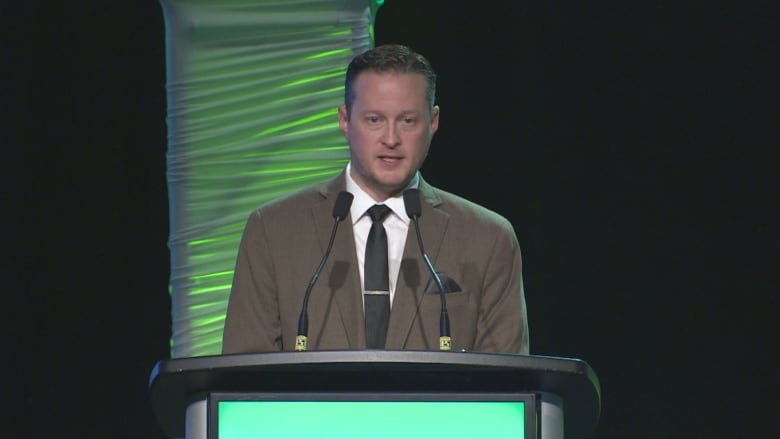
During the same conference, Dymond was interviewed on the Gale Force Wins podcast, which features conversations focused on optimism.
“We’ve already inspired $30 billion of infrastructure to come into that area,” he said during the interview.
It’s not entirely clear where that number came from; Dymond did not clarify it when asked by CBC News.
While those huge dollar figures are being bandied about, Dymond has also been dealing with some more modest financial claims.
In late May, an Ottawa cybersecurity firm sued the Dymond Group for just under $5,000.
The subcontractor alleged in small-claims court that the Dymond Group hadn’t paid any invoices for nine months. The lawsuit was not related to Dymond’s airport project in Newfoundland.
Court documents show that Dymond didn’t file a statement of defence, and settled the case in early July by paying the full amount.
In his email to CBC, he said it was “an unpaid invoice for approximately $3,000 that was promptly paid. No judgment was made, and the claim was withdrawn upon payment days later.”
Status of airport sale
Both Dymond and Stephenville Airport Corporation officials have indicated that a 17-year-old insolvency proceeding has been holding up the final sale.
Dymond’s Greater N.L. Partnership said this summer it “has paid the required sums to the trustee involved and we are currently following the established discharge process.”
A leaked draft acquisition agreement obtained by CBC News at the time put the amount owed to creditors of the 2005 airport proposal at just under $50,000.
The former chair of the airport board indicated last month that the trustee ran into problems trying to track down creditors and find inspectors appointed as part of the process all the way back in 2005.
They finally met last month, and minutes of the meeting were sent to the federal Office of the Superintendent of Bankruptcy to determine whether a discharge can be granted.
The new chair of the airport board declined an interview request from CBC News about the status of that process. The mayor of Stephenville recently indicated it could be cleared up by January or February. As of Monday, there were no new filings at court related to the matter.
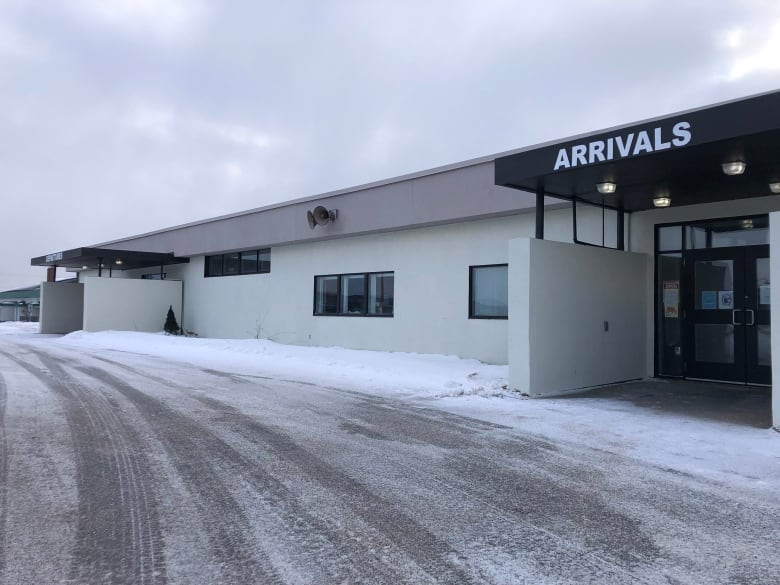
There is another financial hurdle to the acquisition that has not yet been cleared.
The Newfoundland and Labrador government has guaranteed a line of credit up to a maximum of $900,000 to help fund operations at the airport.
Dymond said in late October that there was about $775,000 owing, at that time.
Government officials have repeatedly told CBC News that provincial taxpayers won’t be on the hook for that liability as part of any sale of the airport.
They indicated that the airport corporation is required to pay the full amount owing on the line of credit and close it down. The province will then terminate the guarantee.
In his recent email to CBC News, Dymond again said good things are coming down the runway, and stressed the importance of patience.
“With any new venture, we understand people may be skeptical, particularly based on the years the property was idle,” Dymond wrote.
“Still, we have significant interest from new business partners, in addition to the partners we’ve already announced. We will be sharing those details as those deals are finalized.”

Read more CBC Newfoundland and Labrador